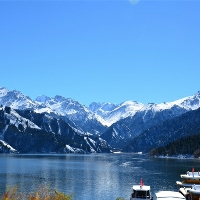second grade
reaction to a book or an article
During the summer vacation, I read a book called "One Hundred Thousand Whys". There is a lot of knowledge in the book that I do not know. Through reading "One Hundred Thousand Whys", I learned many mysteries of human body and nature. I learned that the eyes are the heroes who are most afraid of the cold on the human body, and the tip of the nose, the pinna and the fingertips are the most afraid of the cold. It is also known that fever is actually a physiological defense response of the human body to the invasion of bacteria, which has a protective effect on the body. I also know that the pencil lead we often use today is not made of lead. Its scientific name is "graphite" and it is non-toxic. Also, pure gas is colorless and odorless. Once it leaks out of the pipeline, it is difficult for people to detect it, which is easy to cause poisoning and fire. For safety reasons, people add a small amount of odorant sulfur and benzene to the gas. Once the gas leaks out, people can immediately detect it, so as to avoid accidents.
So we should read more books. Read well, read well, read well.
Have you read a very good book? It's One Hundred Thousand Whys. I like this book best now. Do you know why I like this book "One Hundred Thousand Why"? That's because there is a lot of rich knowledge and interesting esoteric knowledge recorded in "One Hundred Thousand Whys". Let me introduce this book to you!
This book contains knowledge about science, plants, biology, geography, astronomy, history, art, military, literature, philosophy, education, life and so on. After I read "100000 Whys", I felt that there was a lot of rich knowledge in my mind. It was like a glass of water. Keep filling water until it was full. Reading "100000 Whys" was equal to filling water. All the questions in "One Hundred Thousand Whys" are questions, and then the questions are answered, so it is called "One Hundred Thousand Whys". Now I want to ask you a question. Do you know what an artificial cornea is? The artificial cornea is a special device made of transparent forming materials, which can be implanted into the eye through surgery to replace the miscible cornea and restore the vision of the blind. The artificial cornea is composed of a lens column and a bracket. Ah! I learned a lot of interesting knowledge through a small piece of "One Hundred Thousand Why".
Do you think the knowledge in "One Hundred Thousand Why" is rich now? okay? I think reading "100000 Why" will greatly help my knowledge level. I think this book is very good, and it records a lot of history. I hope you can have time to understand it.
I read a scientific book called "Why One Hundred Thousand" and an article called "Why Do Frogs Cry? It's Rainy". I found it very interesting. After reading it, I knew that it was because frogs like to live in a humid environment. They eat a lot of pests every day. They are animals that people should protect. When it rains, the water in the air increases and the humidity increases, Through her wet skin, the frog can absorb a lot of oxygen from the humid air. It feels very happy, so it is very active, so it croaks all the time. So when the frog croaks very happily, people know that it may rain. I also know that many flowers open and emit fragrance in the daytime. Because the volatile oil in the petals is easy to volatilize when the flowers are exposed to the sun and the temperature of the volatile oil in the petals increases, which makes them smell particularly fragrant. Therefore, flowers usually emit fragrance in the daytime.
There are also many interesting contents in the book, such as Why the Elephant Can't Choke When Absorbing Water with Its Nose, Why the Tree Trunk Is Round, and Why the Human Ear Can Hear the Sound of the Outside World. After reading this book, I found that the world is really wonderful, and many mysteries are waiting for everyone to explore, discover, and find. In the future, we will all read books about science and become successors to scientists when we grow up.

